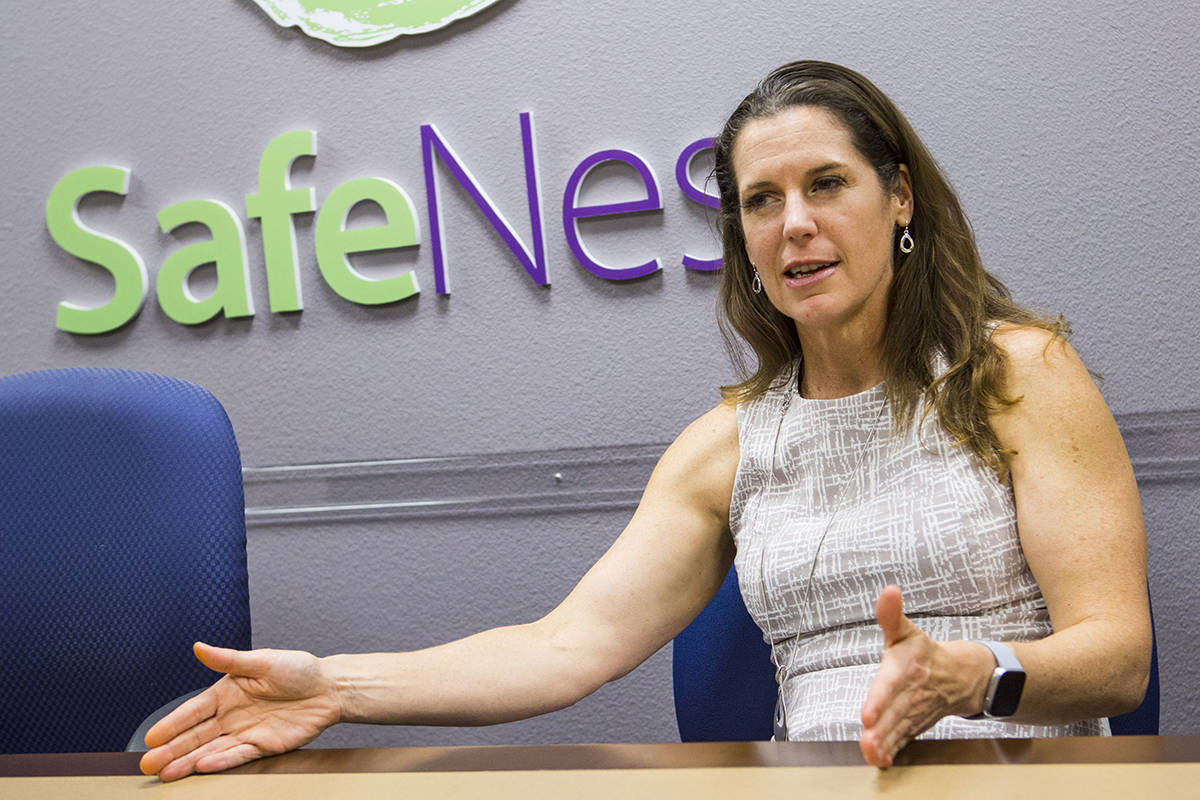Pandemic fueled more domestic violence calls in 2020
Calls to domestic violence hotlines increased by 20 percent last year in Southern Nevada, but fewer residents filed reports with Las Vegas police.
Advocates are blaming the COVID-19 pandemic.
“It wasn’t like domestic violence was not happening,” said SafeNest CEO Liz Ortenburger. “We’re walking around with large percentage of people prone to battery in our community. Our numbers show that. An entire population prone to it were all triggered at the same time. Everybody was stressed at the same time. All that behavior hits like a tidal wave.”
SafeNest received 19,117 calls in 2020, an increase of 3,186 from 2019. Calls in January and February of this year were up 27 percent, Ortenburger said.
The tally includes calls to the shelter’s hotline, its Project Safe 417 and those related to emergency temporary protective orders. Project Safe 417, which pairs police officers with trained advocates to counsel victims in the moments after a crisis, expanded to the entire Las Vegas Valley and 24-hour coverage last year.
Children play a big role
Between assault and battery and domestic disturbance calls, Metro recorded 21,994 domestic violence reports in 2020, down from 22,437 in 2019.
Metro’s victim services manager, Elynne Greene, attributed the decrease in reports to mandated reporters, such as schoolteachers, having limited access to victims.
“Our senior centers were closed, so those who might notice dangerous situations among our elderly, they weren’t there,” she said. “The elderly weren’t going to our senior centers. And our children, they weren’t in school and many of them weren’t even going to doctors on a regular basis because of fear of COVID, and many of the offices were just doing telemedicine.”
Nevada law requires every physician, clinician, therapist, dentist, social worker, counselor, child care provider or person who works in a school to report possible abuse to either the state or local county hotline.
Greene said with more people home during the pandemic, there was less time for victims to safely call police to make a report or search online for resources without being seen.
Ortenburger said calls from victims seeking shelter typically correlate with the school year.
“Generally women who are fleeing, many of whom are moms, are correlating school year time to exit when the kids finish with school,” she said. “Also, as it gets warmer and people are indoors together more, it’s a trigger for people to come into our shelter.”
Because of the need to report discreetly, SafeNest’s texts and online chat functions have seen a dramatic increase, Ortenburger said.
Susan Meuschke, executive director of the Nevada Coalition to End Domestic and Sexual Violence, said many people aren’t ready to face the consequences of making a police report, like being interviewed and going through a court process with their abuser.
”More people are reaching out but not coming in for the face to face, and they’re not calling law enforcement,” she said. “They’re not ready to deal with that.”
The coalition works with hotline services around the state, including the Rape Crisis Center, SafeNest and SafeHouse Center to supply grant funding and advocate for legislation.
Residents at risk of experiencing domestic violence can call 211, or call or text SafeNest’s hotline at 702-646-4981. The Southern Nevada Family Justice Center, 861 N. Mojave Road, offers victims free computer access during regular business hours.
Contact Sabrina Schnur at sschnur@reviewjournal.com or 702-383-0278. Follow @sabrina_schnur on Twitter.





























